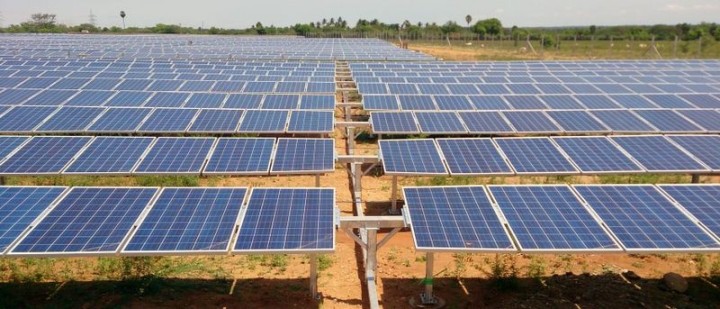The United States has blocked India’s efforts to boost local production of solar cells and solar modules, which would have brought energy to millions of people in dire need of it, by denouncing it to the World Trade Organisation claiming that giving priority to local production violated WTO rules.
India argued that local production helps the country meet its climate commitments under the United Nations Framework Convention on Climate Change (UNFCCC), but the WTO rejected the argument. They stated that domestic policies seen as violating WTO rules, cannot be justified on the basis that they fulfil UNFCCC or other international climate commitments.
However…
“We very much support India’s ambitious goal for solar energy, and stand ready to speed this expansion with additional financing,” Obama said during his visit to India in 2015.
“We discussed our ambitious national efforts and goals to increase the use of clean and renewable energy,” echoed Modi. “I asked him (Obama) to lead international efforts in making renewable energy more accessible and affordable to the world.”
The WTO dispute settlement has done exactly what the ISDS tribunals will do for TTIP, TTP, CETA, TISA and other ‘free’ trade agreements being discussed under closed doors around the world, preventing countries from planning according to their needs and giving priority to the profits of the big corporations.
The US, famous for its protectionist rules and ‘buy local’ policies has shown again its double standards, and nothing suggests that its behaviour is likely to change after the new ‘free’ trade agreements are signed.
The Ecologist informs ‘Not the first time trade agreements have blocked environmental policy
‘Trade agreements are often stumbling blocks for action on climate change. Current trade rules limit governments’ capacity to support local renewable energy, undermine clean technology transfer and empower fossil fuel companies to attack climate protection in secret courts. Trade policies are preventing a sustainable future.
‘In 2012, the WTO ruled against Ontario’s innovative Green Energy Act, which intended to help boost renewable technologies and clean-energy jobs. Similar to the Indian case, part of the program included a ‘feed-in-tariff’ that supported local suppliers. The policy was changed to comply with WTO rules.
‘In just the last three months, Ecuador was ordered to pay $1 billion dollars for canceling a petrol contract under a Bilateral Investment Treaty, and TransCanada announced it would sue the US government in a trade tribunal for $15 billion for rejecting Keystone XL pipeline to transport dirty Tar Sands.’
India may appeal the ruling but the direction of trade rules are clear and marching seemingly in an unstoppable way towards the dictatorship of profit over the needs of ordinary people.
.






